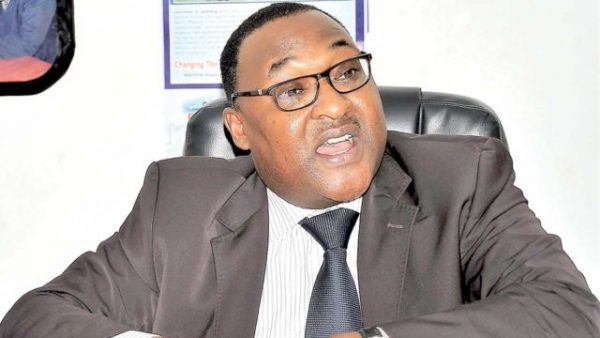Mixed Reactions Trail CBN’s Cashless Policy
 Despite the multifarious challenges of the cashless services channels like the Automated Teller Machines (ATMs) and Point of Sale (POS) machines which have become liabilities for banks and e-payment service providers like malls and shops, the new cashless policy of the Central Bank of Nigeria (CBN) kicked off on April 1st, in Lagos, Ogun, Kano, Abia, Anambra, Rivers and the Federal Capital Territory (FCT).
Despite the multifarious challenges of the cashless services channels like the Automated Teller Machines (ATMs) and Point of Sale (POS) machines which have become liabilities for banks and e-payment service providers like malls and shops, the new cashless policy of the Central Bank of Nigeria (CBN) kicked off on April 1st, in Lagos, Ogun, Kano, Abia, Anambra, Rivers and the Federal Capital Territory (FCT).
The use of POS services in most supermarkets in Lagos is on the decline as a result of network failure. A survey of mobile and internet banking services among banks show that show that as a result of poor service delivery from banks, customers have been discouraged from using such mediums. These factors coupled with the fact that some professions still demand the utilization of cash in large sums, has seen the new policy raise varying views, kudos as well as dissatisfaction among Nigerians.
Whilst some bank managers have lampooned the policy as anti-people, most online stores have celebrated the policy as germane to the development of e-banking and online transactions. For freight forwarders, the policy negates their vocation which often demands that they carry cash around.
Speaking with MMS Plus recently on the cashless policy, the National Secretary of the Association of Nigeria Licensed Customs Agents (ANLCA), Mr. Emmanuel Opara lamented that the cashless policy affects the Clearing business seriously because the clearing procedures in the country are yet to be fully electronic.
Mr. Opara also stressed that the high level of corruption in the freight forwarding business demands that agents always have cash to grease the palms of some corrupt agencies at the ports such as the Customs officers, officials of the Standard Organization of Nigeria (SON), Police, etc.
“We still need to carry large sums of money about. We still have human contact with the agencies of government that we do business with. So, we need to carry cash to do our business because of the high level of corruption in the system. Even when you have followed due process in clearing the goods, because we come in contact with the Customs, Standards Organization of Nigeria, Police, Quarantine Service, etc., we have to give them monies.”
“This is one of the reasons why we have been crying out to the government to reduce the agencies at the ports because some of them are doing nothing to add value to the system or protect the interest of the nation, they are just there to extort monies from agents and worsen the ease of doing business at the nation’s ports.”
Meanwhile, financial outfits like Payporte.com, an indigenous online store and sponsor of the ongoing Big Brother Naija reality show, has celebrated the new policy and moved swiftly to announce the suspension of ‘Payment On Delivery’, as part of its payment options.
According to the online store, only online secured payments and bank transfers would be accepted as means of payment as the company cancelled its ‘Pay On Delivery’ policy last week Monday, March 3, 2017, in its bid to better serve customers better and to re-position its business for profitability.
The Managing Director of PayPorte, Mr. Bassey Eyo said, the decision was in line with the new CBN cashless policy, increasing security challenges posed by Payment on Delivery option and improved customers satisfaction.
“Our decision was necessitated by the increasing risk and security challenges posed by this payment option. Also, to reduce the amount of cash carried from one location to another by our delivery staff. We encourage our customers to make use of our other secured electronic payment options such as online payment or bank transfer for payments”, he said.
Mr. Eyo expressed optimism that the new policy would lead to the transformation of the nation’s online payments and e-business.
“I believe this will also play an active role in the growth of e-commerce business in Nigeria, as well as give a new dimension to the business. In line with the suspension, refunds for unsatisfied customers would now be processed within a maximum of 48 hours while only customers who have shopped on PayPorte for five times or more will be able access the POD option from the 10th April pending its total discontinuation” Eyo added.
In his reaction, the Managing Director of Cowry Assets Management Limited, Mr. Johnson Chukwu, said, “The challenge of the cashless policy is that there are still States that do not have effective network coverage particularly for data services. So, in such locations it would be difficult to do internet payment and mobile banking. However, I think we should welcome the cashless policy because when it kicks off, it would compel the telecommunication companies to improve their services especially in rural areas.
Mr. Johnson argued that there may never a right time when all the factors would be available to support the cashless policy, opining that policy would encourage more people to open accounts, enhance the use of electronic and online modes of payments.
“If we have to achieve this, we have to strive even when all the conditions are not available. If we want to wait for a time when the network conditions of telecommunication companies would be efficient across the country and probably there would be free wifi, then we would have to wait for donkey years and the nation would be foregoing the benefits of the cashless policy”
“There are several benefits that would be derived from the implementation of the cashless policy nationwide. One is that it would reduce the rate of criminal activities like kidnapping for ransom which requires exchange of money. It would be difficult for the victims to withdraw the cash and also difficult for the kidnappers to use a bank account. The issues of armed robbery would reduce and also the corruption in the country. Some of the benefits outweigh the disadvantages. I also insist that where there are service gaps with respect to the telecommunication service providers, then the CBN should grant waivers to such localities.” He noted.
According to the apex bank circular to all banks signed by the Director of Banking &Payment System Department, Mr. Dino Fatokun, the new charges for cash deposit by individuals are as follows: Less than N500,000, zero charge; from N500,000 to N1 million, 1.5%; from N1 million to N5 million, 2% charge; above N5 million, 3% charge.
Charges for cash withdrawal by individuals are as follows: Less than N500,000, zero charge; From N500,000 to N1 million, 2% charge; from N1 million to N5 million, 3% charge; above N5 million, 7.5% charge.
Charges for corporate cash deposit are as follow: Less than N3 million, zero charge; from N3 million to N10 million, 2% charge; from N10 million to N40 million, 3% charge; above N40 million, 5% charge.
Charges for corporate cash withdrawals are as follows: Less than N3 million, zero charge; from N3 million to N10 million, 5% charge; from N10 million to N40 million, 7.5% charge; above N40 million, 10% charge.
Exemptions in the policy include revenue generating accounts of the Federal, States and Local governments for lodgments only; Embassies, diplomatic missions, multilateral and aids donor agencies in Nigeria also exempted.
The policy would be implemented with the charges taking effect on May 1st, 2017 in Bauchi, Bayelsa, Delta, Enugu, Gombe, Imo, Kaduna, Ondo, Osun, and Plateau states; while on August 1st,2017, has been scheduled to take effect in Edo, Katsina, Jigawa, Niger, Oyo, Adamawa, Akwa-Ibom, Ebonyi, Taraba, and Nasarawa states. On October 1st, 2017, Borno, Benue, Ekiti, Cross River, Kebbi, Kogi, Kwara, Yobe, Sokoto, and Zamfara states will kick-off their implementation of the policy.
By Kenneth Jukpor







